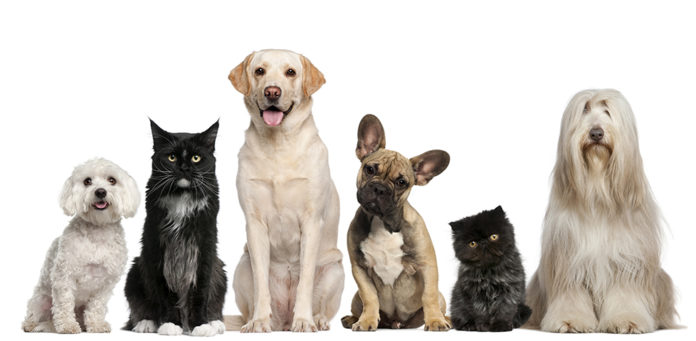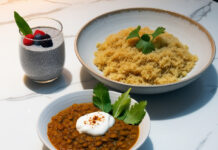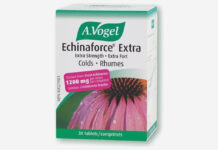
With so many pet foods all claiming to be the best and healthiest option for your pet, choosing the right one can be overwhelming. Here’s why you should buy natural pet food and why just looking for the word “Natural” isn’t enough.
BY NATASHA BAGULEY
Before heading out to examine your options, you need to assess the specific needs of your pet. “The first step is to talk to your veterinarian,” says Dr. Berney Pukay, an Ottawa-based veterinarian and Ontario’s representative on the council of the Canadian Veterinary Medical Association. “Ask what you should be feeding this particular cat or this particular dog.”
Questions you should as include: How old is your pet? How active is your pet? Does your pet have any health issues like skin allergies or kidney concerns? Is your pet at an ideal weight? Are there any specific breed concerns? A Chihuahua puppy, for example, has very different needs than a senior Great Dane.
WHAT TO LOOK FOR
Once you’ve established your pet’s needs, look at the products that are available. There are a lot of foods out there with labels that say “natural” on them. Just like with human foods, however, you have to take the word with a grain of salt and look at a detailed ingredient list.
Dog Food Advisor (www.dogfoodadvisor.com) is a website that has reviews on 750 dog foods (with more added all the time). Individual ingredients are examined and foods are rated using a five-star system. Top rated foods typically contain quality meat products as the first ingredients – chicken or turkey meal, fish, or deboned chicken. Also look for steel cut oats and recognizable ingredients like sweet potato, carrots, spinach, blueberries and other fruits and veggies.
WHAT TO AVOID
Just as you want to avoid the processed and unnatural foods in your own diet, you should do the same for your cat or dog. Avoid too many fillers, empty calories and unnecessary preservatives. Dog Food Advisor’s lowest rated foods generally list corn as the primary ingredient, have a lower meat content or meat by products (slaughterhouse waste) and contain unnecessary additives like colouring (because face it, your pet really doesn’t care what colour his or her food is).
BEYOND THE LABEL
Reading labels can only take you so far. “Most of us are not nutritionists,” explains Dr. Pukay. While we may be able to recognize what ingredients are, we can’t really tell what these ingredients mean nutritionally for our pet. Instead, look at the research that has gone into developing the food. “My advice is to look for products made with quality ingredients that are manufactured by pet food companies with a proven track record,” says Mike Sagman, Editor and Creator of Dog Food Advisor. Look at the large, reputable pet food companies and see what kind of research they have done, see why they include the ingredients they do, and if they have had any recalls. Then judge to see if their claims seem reasonable.
SHOULD YOU FEED YOUR PET GRAINS?
There’s a big debate in the pet food industry as to whether or not dog and cat foods should include grains. The Pet Nutrition Alliance, a group of veterinary organizations teamed up to promote the importance of nutrition in the health of pets worldwide, believes grains are an important part of a balanced diet. “Grains help keep calories and fat at lower levels in pet foods and provide a good source of fiber, which promotes normal bowel function, maintains health of the gastrointestinal (GI) tract and helps in the management of certain diseases.”
Corn is the most controversial grain. Although the Nutrition Alliance deems it acceptable, others consider it a filler void of nutritional value. Therefore, a safe choice might be to stay away from the controversial corn and opt instead for grains seen as healthier options like whole oats, barley and brown rice.
PRACTICAL MATTERS
You could do all the research in the world and pick the most nutrient-dense food on the market, but if your cat or dog won’t eat it, it won’t do them any good. Make sure you have a couple of nutritious choices so you can see what best suits your pet’s individual taste buds.
Budget is also a concern for many people. Some of the top-of-the-line pet foods can be very expensive. This is especially true of canned foods – especially for a large dog. One option is to consider mixing a higher end food in with a mid-priced choice.
The last thing to consider is availability. Our lives are busy, and picking up pet food needs to be convenient. If you can only pick it up at your vet or you have to drive half way across the city to that little specialty store it might not be the best choice. Also, if you plan on travelling with your pet, choose something widely available at common chain stores.
One final important piece of advice: If you decide to make a change, switch your pet to a new food slowly, gradually mixing new food in with their existing food to prevent unnecessary stress on their GI tract. VM
CAN PETS EAT PEOPLE FOOD?
While the odd snack here and there won’t hurt, pets should generally stay away from people food. “We tend to abuse letting our pets eat people food,” says Dr. Pukay. A little bite soon becomes a full cookie, which becomes two cookies or cookies with ice cream and potato chips on the side. If you do want to share people food as a treat, there are lots of healthy choices like baby carrots, low-fat cheese, lean cooked meats, bananas, yogurt, peanut butter, pumpkin, eggs, apple, green beans, blueberries and sweet potatoes.
Some people foods are dangerous, however, and should never be given to pets – even in small quantities. These include: chocolate, grapes, raisins, macadamia nuts, bread dough, garlic, onions, alcohol, caffeine and avocado.
Try these products:
Omega Alpha- Pet Vitality
Omega Alpha’s Pet Vitality is a senior pet formula for dogs and cats that treats reduced activity, pain, decreased energy and immunity in aging cats and dogs. Your furry loved ones may be getting older, but they can regain their energy and health with Pet Vitality containing 45 vitamins, minerals, nutrients and herbs.
Omega Alpha- Wild Salmon Oil Blend
It’s important that your pet gets purified fish oil that is molecularly distilled to remove any toxins or pesticides, and Omega Alpha’s Wild Salmon Oil Blend assures just that. The purified oil taken from salmon and deep ocean small fish such as sardine, anchovy and mackerel, assures that your pet gets a high dose of DHA and EPA. It’s loaded with Omega-3 Essential Acids that are important for cardiovascular system, blood pressure, and so much more.












